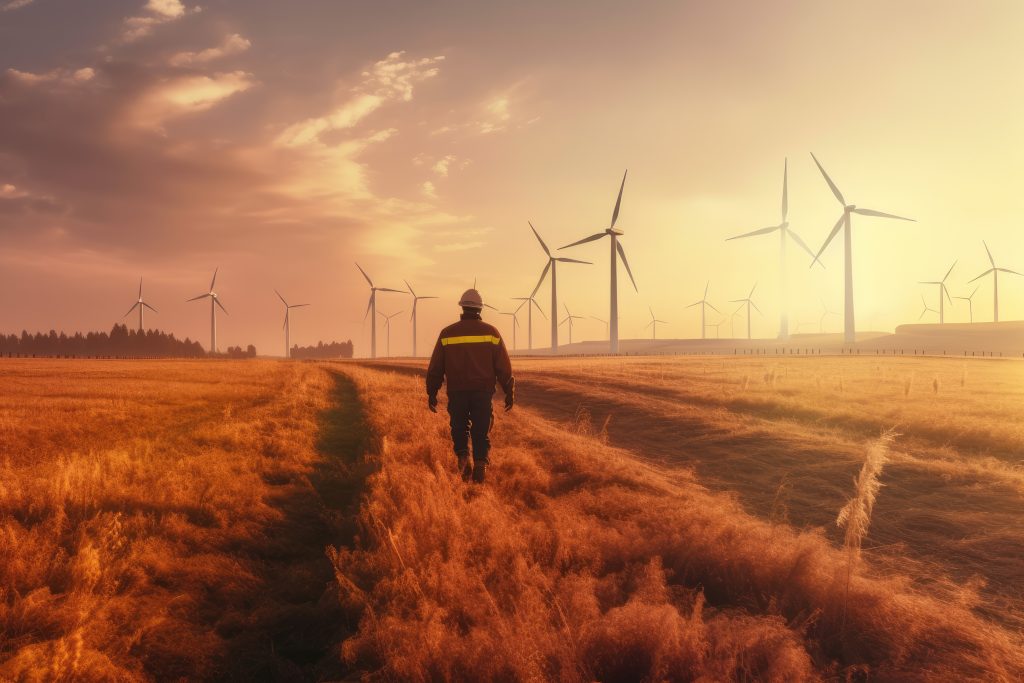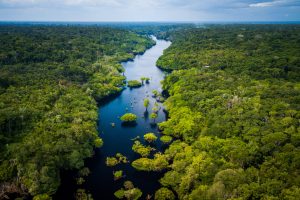The importance of green job creation for decarbonisation

The connection between green jobs and decarbonisation
Decarbonisation
Greenhouse gas
Carbon dioxide (CO2)
For businesses, decarbonisation involves actions like improving
Energy efficiency
Renewable energy
However, the supply of workers with green skills is currently insufficient, providing companies with a unique opportunity to invest in talent development through skills programs, apprenticeships, and internships. This is particularly important in communities with limited economic participation opportunities, helping to ensure that the transition to a sustainable economy is fair and inclusive.
As businesses expand to meet the demands of a sustainable future, the economy grows as well, opening up exciting opportunities for impact investors. By addressing potential talent shortages now, businesses can lead the way in fostering a vibrant, decarbonised economy.
The need for a skilled workforce
LinkedIn Economic Graph recently published a Green Skills Report breaking down climate-related jobs as collections of skills called “green skills”. The report revealed only one in eight workers possesses green skills.
LinkedIn found that the demand for green skills across 48 countries is outpacing the supply, with a +12.3% increase in green talent versus a +22.4% increase in job postings requiring at least one green skill between 2022 and 2023. 1 This gap underscores the importance of green job creation for decarbonisation.
Job creation potential in the green economy
The shift to a green economy in the UK could create as many as 1.6 million jobs.
2
Around 270,000 workers in the UK’s oil and gas sector could transfer their skills to the
Net Zero
Many businesses in the UK are increasingly adopting the ‘grow your own’ talent approach. According to a recent survey by Close Brothers Asset Finance and Leasing, 90% of the UK’s small and medium enterprises (SMEs) view apprenticeships as a partial solution to the country’s skills gap crisis. Additionally, one-third of the surveyed firms reported having their own apprenticeship schemes. 5
Key sectors for decarbonisation and green jobs
Decarbonisation is a universal priority across all industries, with some sectors bearing a larger burden due to their heavy carbon footprints.
The largest publicly traded emitters are covered by Climate Action 100+ (CA 100+), an investor-led initiative that engages with the world’s largest corporate greenhouse gas emitters to drive reductions in emissions and promote sustainable business practices.
The CA 100+ covers 170 companies in shipping, oil, gas, coal, aviation, construction, mining, steel, chemicals, automobiles, consumer goods and services, paper, and transportation. Many of these sectors are big employers, but increasingly, clean energy is taking over as the source of employment. 6 This transition is driving the need for green job creation for decarbonisation.
At Tribe, we prioritise investing in companies that develop and deliver decarbonisation solutions. Our focus areas include sectors like energy efficiency technology, renewable energy (generation, distribution, and storage), net-zero housing, regenerative agriculture and forestry.
Economic and sustainable growth through green jobs
A low-carbon economy opens up new markets and opportunities for innovation, leading to job creation. Clean energy, electrification and green finance are some of the core sectors providing green job creation for decarbonisation.
Clean energy
There’s been positive growth in renewable energy worldwide, with more people joining the industry than leaving it. Between 2015 and 2023, employment in the renewable energy industry grew in every country studied. During this period, 120 workers joined the renewable energy industry for every 100 who left. 7
Electrification
The share of auto workers with electric vehicle (EV) skills, a subset of green skills, rose by a median of 61% between 2018 and 2023. The countries with the greatest share of auto workers with EV skills as of March 2023 are Sweden (8.1%), the UK (7.3%), and Germany (6.1%). 8
Green finance
Green finance also provides interesting opportunities. While LinkedIn found the median green talent concentration across all industries is 12.3%, it’s only 6.8% for financial services. 9 This means only one in 15 people working in finance have a green skill. 10 This places finance below industries ranging from energy and mining to agriculture and manufacturing when it comes to the concentration of green talent.
Social equity and education
Job creation in the sustainable economy provides broad and wide opportunities, varying by location. Many of these jobs require preexisting qualifications and technical proficiencies, which may not be accessible to underserved communities. However, online learning in green skills and courses specifically targeting these communities are increasing.
Businesses are also increasingly addressing unemployment in underserved communities as part of their approach to social mobility. In 2023, 143 new companies entered the UK Social Mobility Index – which measures social mobility across the country with the aim to monitor and improve social mobility over the next 30 years – and the National Grid and British Land were two of the top 75 employers listed.
In the UK, there are three broad classifications for green skills: practical, enabling and understanding. Examples of these types of green skills include:
- Practical: heat pump installation, domestic recycling, energy grid engineering, peatland restoration
- Enabling: project management, collaboration, public engagement, digital skills
- Understanding/Attitudes: scientific literacy, systems thinking, environmental stewardship
All three classifications present opportunities for training those in underserved communities, working towards the goal of green job creation for decarbonisation. Given the UK unemployment rate was 4.4% between March and May 2024, and 1.53 million people aged 16+ were unemployed, addressing the green skills and unemployment gap creates big potential. 11
With our
Science Based Target (SBT)
UN Sustainable Development Goals (UN SDGs)
Within Tribe portfolios, there are many stories of companies that are driving decarbonisation and empowering people for employability. These range from digital learning programs focused on sustainable skills to critical clean energy infrastructure projects that engage and employ individuals from marginalised communities.
Investing in tomorrow’s economy
Investing with a focus on decarbonisation, and therefore job creation, offers investors the opportunity to invest in some of the world’s leading companies driving systemic change on key social and environmental issues. These companies, which prioritise green job creation for decarbonisation efforts, are ensuring they’re fit for the future by limiting their constraints on access to talent. Addressing the skills gaps now is a hedge against a decline in growth down the line. Put simply, it’s good business.
Footnotes
-
LinkedIn Economic Graph. (2023). Global Green Skills Report 2023.Scroll to footnote
-
Institute for Public Policy Research (IPPR). (October 2023). Revealed: UK is lagging behind in the race for green growth, due to lack of industrial strategy.Scroll to footnote
-
Pricewaterhouse Coopers (PwC). (August 2022). Energy transition will be constrained by green skills gap of c.200,000 workers – PwC Green Jobs Barometer.Scroll to footnote
-
LinkedIn Economic Graph. (2023). Global Green Skills Report 2023.Scroll to footnote
-
Close Brothers. (January 2024). UK’s SMEs believe apprentices are solution to UK’s skills gap crisis.Scroll to footnote
-
IEA. (November 2023). World Energy Employment Report 2023.Scroll to footnote
-
LinkedIn Economic Graph. (2023). Global Green Skills Report 2023.Scroll to footnote
-
Ibid.Scroll to footnote
-
Ibid.Scroll to footnote
-
Ibid.Scroll to footnote
-
UK Parliament, House of Commons Library. (August 2024). UK Labour Market Statistics.Scroll to footnote




